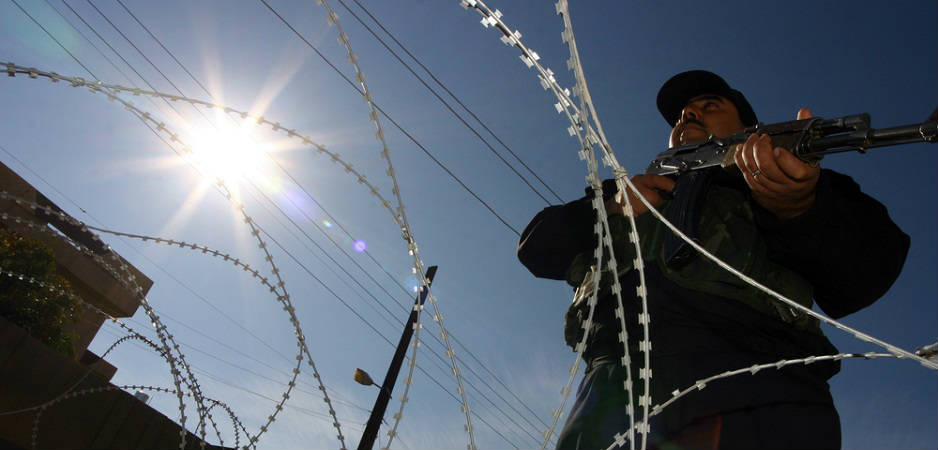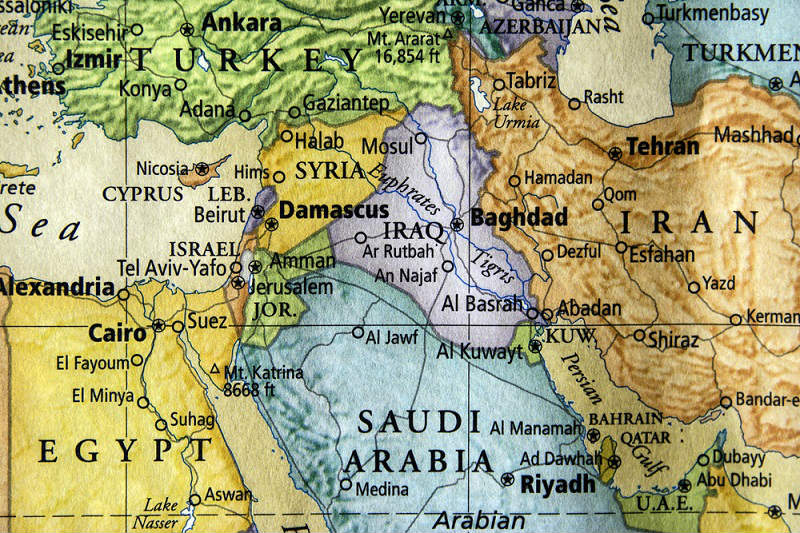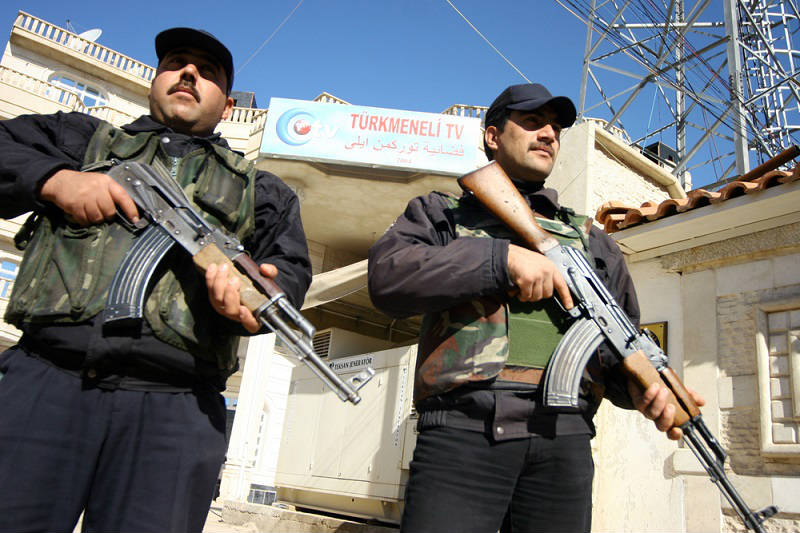In the battle for Iraq, Sunnis must be assured that they have a place in the country after the Islamic State.
Will we see a victory against the Islamic State? Maybe. This will depend entirely on what metric we might use to measure success in victory. Will this be defined by the number of insurgents that have been killed or wounded? In a war of attrition that is asymmetric, measurement against a body count is practical — if not a bit gruesome. Or do we measure the political prowess of lawmakers who see genuine opportunity in resolving the conflict? The only real solution to defeat the Islamic State is political, but in the murky world of geopolitics, sometimes the best option is to maintain the status quo.
Regardless of what your opinion might be, the inevitable climax in the battle for Tikrit will soon provide the answers to all of these questions and more.
The significance of the military operation to retake Tikrit in Iraq cannot be underestimated. It will be the first major urban area wrested from the Islamic State since its advance in June 2014. While the circumstances surrounding the operation have been less than ideal, no one can really be faulted for imperfection when it comes to this kind of war. Even if augmenting the Iraqi Security Forces with upward of 20,000 Shiite militia remains highly controversial, if not the least bit pragmatic. As does the presence of such notable commanders on the battlefield like Qasem Soleimani of Iran’s Quds Force.
Unfortunately, without these things, the assault on Tikrit would have ended much in the same way as previous attempts: in disaster and retreat. But now that 65-75% or more of the city has been cleared of insurgents, we should focus on what is to follow. What comes next will shape the rest of the conflict with the Islamic State, because in Iraq the fighting has always been the easy part.
Shiite Militias and Iran
The real war against the Islamic State can never be won by military solutions alone, much like the group’s ascendancy was not only the result of zealotry or ideology. These things never exist in a vacuum. They are compelled by circumstances that allow them to flourish in places where there are no other viable alternatives; the result of failed policies, political marginalization and sectarian enfranchisement. In Iraq, the engine of this discontent has always been the promotion of Shiite interests over Sunni.
So what happens now — now that a Shiite army is taking control of a major Sunni city, which has been a known support center for the Islamic State? There should be no question that every Sunni politician, tribal leader, opposition figure and armed insurgent in Iraq will be contemplating their next move based on what happens in Tikrit.
Fears of an indiscriminate massacre of Sunni civilians seems somewhat overstated, although understandable. The Shiite militias have a documented history of killing, displacing and abducting civilians. For some Sunnis, the presence of the militias — with names like the League of the Righteous, Badr Corps and Kata’ib Hezbollah — inspire the same kind of dread as the Islamic State. Nevertheless, the participation of some major political figures, such as Hadi al-Amiri, in the battle for Tikrit will likely restrain some of the more aggressive elements within the militia, as will the involvement of Iran.
While some extra-judicial killings and human rights abuses have already been reported, Shiite militias and Iran do not have a vested interested in returning to a state of permanent sectarian conflict. Both parties have a desperate need for political legitimacy, which will be weakened by sanctioned abuses of the Sunni population.
Once the battle for Tikrit is over, though, the most immediate concerns will be stabilization and reconciliation — both of which the Iraqi government is exceedingly bad at encouraging. Despite this, there has never been a better opportunity to implement the kinds of political solutions needed to reassure the Sunni population that there is a place for them post Islamic State. Funds should be allocated for reconstruction, while the government engages politically at a grassroots and tribal level. This will not only empower a new constituency that can take ownership of their own security, but provide incentives for Sunnis to rejoin the political process. This is the only way to truly defeat the Islamic State.
None of this can be achieved by leaving armed Shiite militias garrisoned on Sunni land. Having the militia act as an occupying force will only aggravate tensions and lead to the same kinds of sectarian violence everyone is so desperate to avoid. Furthermore, any ungoverned space will be susceptible to agent provocateurs and other anti-government forces that still exist in droves throughout Sunni provinces. This is exactly the kind of environment that the Islamic State excels at exploiting, which not only advances its military options, but gives credibility to its entire political narrative.
The outcome of this might not result in any further territorial losses, but the measure of success against the Islamic State cannot be calculated against terrain held and fighters killed. It must also be measured in terms of reconciliation and a commitment to the political process.
The US Role?
The battle for Tikrit has also called attention to the receding influence of the US mission in Iraq moving forward. Indeed, our reticence to support this operation due to the Iranian involvement was not lost on the Iraqis. Prioritizing domestic politics over the practical requirements needed to rapidly mobilize against the Islamic State appears fickle and non-committal. Therefore, it should come as no surprise that the US will probably not be consulted on major planning to retake Mosul.
Unconfirmed reports have already started to emerge that Sunni tribal leaders are now reaching out for assistance from Shiite militias such as the Badr Corps, who have close links with Iran. We should be comfortable with this, and not attempt to redress any holistic avenues of cooperation between Sunni and Shiite.
What the lack of involvement in Tikrit does spotlight, however, is that the main regional priority for the US is no longer the fight against the Islamic State, but the nuclear deal with Iran. We seem content to trade space for time with Iran over its growing influence in Iraq, in order to ensure the successful completion of negotiations over the nuclear program. This is not necessarily a bad thing, since our influence in Iraq is superfluous at best and destructive at worst. At the same time, the influence of Iran has the potential to be an accelerant for sectarian conflict.
Remember, all choices at this point represent the perpetual struggle between bad and worst case scenarios.
Our influence, therefore, needs to be peddled where it actually has the ability to be meaningful, which is through the Kurdistan Regional Government. There can be little doubt that after the success of Tikrit, the Iraqi government will attempt to expedite planning for the “big push” against Mosul. US military advisors should actively ensure that the Peshmerga’s objectives are clearly consistent with the goals set forward by the Iraqi government, especially as historically disputed territories are cleared of the Islamic State. Failure to de-conflict these priorities will only set the conditions for future instability.
The true metric for success in victory will be the Iraqi government’s commitment to reconciliation, regardless of what role Tikrit might have played in the current insurrection. There is only one chance to get this right, one chance to show the Sunnis — and the world — that there is a place for them after the Islamic State. If this is squandered due to petty factionalism, reprisals and sectarianism, then Iraq will never recover in any meaningful way. The context for continued violence will be permanently established, and the subsequent battle for Mosul will be only that — a battle — with no clear purpose or objective past the war fighting. And by that time, the Islamic State will have won already.
The views expressed in this article are the author’s own and do not necessarily reflect Fair Observer’s editorial policy.
Photo Credit: Sadik Gulec / Robert Hale / Shutterstock.com
 We bring you perspectives from around the world. Help us to inform and educate. Your donation is tax-deductible. Join over 400 people to become a donor or you could choose to be a sponsor.
We bring you perspectives from around the world. Help us to inform and educate. Your donation is tax-deductible. Join over 400 people to become a donor or you could choose to be a sponsor.
Support Fair Observer
We rely on your support for our independence, diversity and quality.
For more than 10 years, Fair Observer has been free, fair and independent. No billionaire owns us, no advertisers control us. We are a reader-supported nonprofit. Unlike many other publications, we keep our content free for readers regardless of where they live or whether they can afford to pay. We have no paywalls and no ads.
In the post-truth era of fake news, echo chambers and filter bubbles, we publish a plurality of perspectives from around the world. Anyone can publish with us, but everyone goes through a rigorous editorial process. So, you get fact-checked, well-reasoned content instead of noise.
We publish 2,500+ voices from 90+ countries. We also conduct education and training programs
on subjects ranging from digital media and journalism to writing and critical thinking. This
doesn’t come cheap. Servers, editors, trainers and web developers cost
money.
Please consider supporting us on a regular basis as a recurring donor or a
sustaining member.
Will you support FO’s journalism?
We rely on your support for our independence, diversity and quality.









Comment